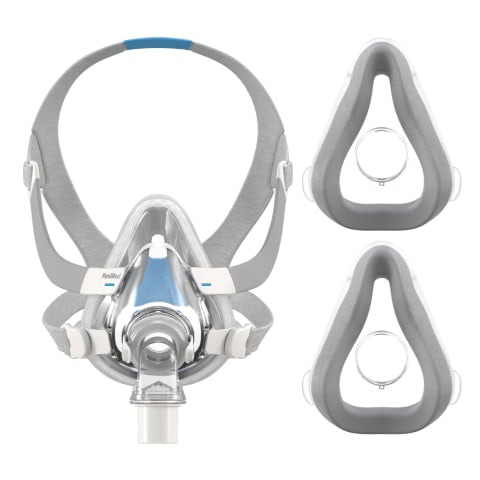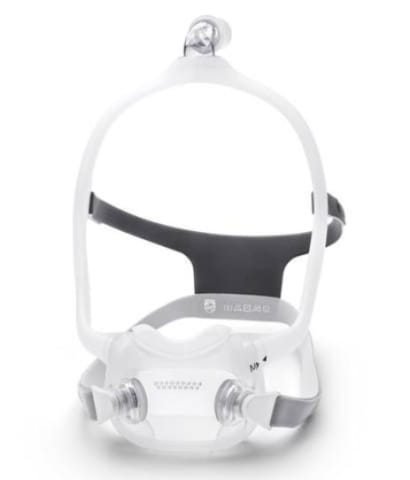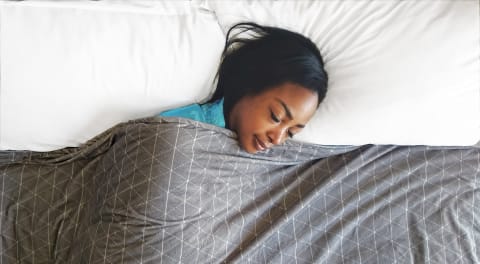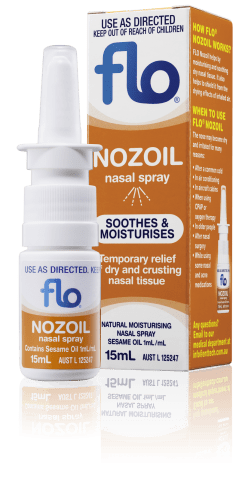Best CPAP Mask for Mouth Breathers
Your Guide to Full Face CPAP Masks and Mouth Breathers?
If you’re just starting out or adjusting to CPAP therapy, finding the right CPAP mask is one of the most important steps you can take toward long-term comfort and success. For many patients, particularly those who breathe through their mouth during sleep (a mouth breather), a full face CPAP mask may be the best option.
With tears of experience, our team understands that comfort, fit and effectiveness go hand in hand. That’s why we offer a wide range of full face masks, along with expert clinical support to help you choose and fit your mask correctly. Whether you’re new to therapy or reassessing your current setup, this guide will walk you through what full face masks are, who they’re best for, and how to find one that suits your sleep style.
Full Face CPAP Masks Are Ideal for Mouth Breathers
If you tend to breathe through your mouth while sleeping, a full face mask is usually the most effective choice. Unlike nasal masks or nasal pillows, which rely on nasal breathing, full face masks cover both the nose and mouth — ensuring you receive continuous positive airway pressure (CPAP) even if your mouth opens during the night.
Mouth breathing during sleep is more common than most people realise. It can occur due to nasal congestion, allergies, sinus issues, or simply out of habit. If you’re using a nasal mask and find yourself waking up with a dry mouth or therapy data showing air leaks, it might be time to consider a full face solution.
In our clinics, our Respiratory and Sleep Physicians and CPAP consultants can help you identify whether mouth breathing is affecting their therapy, and guide you toward mask styles that ensure consistent, comfortable treatment. Simply visit us at one of our clinics or call 1300 76 29 39 to book.
 Further $15 Off with code "AUTUMN15"
ResMed AirFit F20 Full Face CPAP Mask
Further $15 Off with code "AUTUMN15"
ResMed AirFit F20 Full Face CPAP Mask
 Further $15 Off with code "AUTUMN15"
ResMed AirFit F40 Full Face CPAP Mask
Further $15 Off with code "AUTUMN15"
ResMed AirFit F40 Full Face CPAP Mask
 Further $15 Off with code "AUTUMN15"
ResMed AirTouch F20 Full Face CPAP Mask Starter Kit (includes 2 spa...
Further $15 Off with code "AUTUMN15"
ResMed AirTouch F20 Full Face CPAP Mask Starter Kit (includes 2 spa...
 Further $15 Off with code "AUTUMN15"
ResMed AirFit F30i Full Face CPAP Mask
Further $15 Off with code "AUTUMN15"
ResMed AirFit F30i Full Face CPAP Mask
 Philips Respironics DreamWear Full Face CPAP Mask (S and M Frame)
Philips Respironics DreamWear Full Face CPAP Mask (S and M Frame)
High Pressure Settings
If your therapy involves higher pressure settings, whether prescribed after a titration sleep study or due to moderate-to-severe obstructive sleep apnea, a full face mask often offers greater seal stability and comfort under high pressure settings.
High-pressure airflow can sometimes lead to mask leaks with smaller nasal-only designs, especially if the seal shifts or if you’re a restless sleeper. Full face masks, by distributing the pressure across a larger area, can often provide a more secure fit throughout the night.
Modern full face masks, like the ResMed AirFit F20 and F30i, are designed to seal well and stay in place even as you change positions during sleep. They also feature soft, adaptive cushions that minimise red marks and improve comfort — even for those with facial hair or sensitive skin.
If you’ve been struggling with mask seal issues, waking up due to leaks, or feeling discomfort at higher pressures, a full face mask could make a noticeable difference.
Nasal Masks May Require Additional Accessories
While full face masks are typically the go-to option for mouth breathers, some patients prefer the lighter feel of a nasal or nasal pillow mask. In these cases, you may still be able to use a non-full face option, but it usually requires the use of additional accessories such as a chin strap.
Chin straps are worn around the head and gently support the jaw to help keep the mouth closed during sleep. This can prevent air from escaping and reduce dry mouth symptoms. However, results can vary from person to person, and some find chin straps uncomfortable or insufficient over time.
If you are unsure, our team can assess whether you’re a good candidate for a nasal mask with chin support — or whether a full face mask might offer a more reliable long-term solution. Our clinical consultations (in-clinic or via telehealth) allow us to tailor our recommendations based on your therapy data, facial structure, and sleeping habits.
Full Face CPAP Mask FAQs
How do I know if I’m a mouth breather while asleep?
Finding out whether you breathe through your mouth at night is a key step toward choosing the right CPAP mask. Common signs include waking up with a dry mouth, sore throat, or chapped lips despite using a humidifier. You may also notice increased leak rates in your CPAP data or inconsistent therapy results.
Your bed partner might also mention snoring or open-mouth breathing during the night. At Sove CPAP Clinic, we can help assess your breathing patterns through a combination of CPAP therapy data analysis, patient history, and (if needed) a bulk-billed sleep study with a GP referral. Recognising mouth breathing early allows us to recommend the right mask — often a full face model — for better comfort and compliance.
Are full face CPAP masks comfortable to use?
Yes, and comfort has come a long way in recent years. Today’s [full face CPAP masks}(https://www.thecpapclinic.com.au/full-face-mask-respirator) are designed to be both effective and user-friendly, with flexible frames, soft silicone cushions, and quiet airflow vents.
The ResMed AirFit F30i’ is a great option for users who feel claustrophobic — it sits under the nose and has a top-of-head tubing connection for a less bulky feel.
Fisher & Paykel’s Vitera features a RollFit XT cushion that adapts to your face shape as you move during sleep, reducing pressure and maintaining a secure seal.
The Philips DreamWear Full Face mask channels air through soft, under-the-nose cushions with minimal facial contact, making it ideal for side sleepers and those with facial hair.
Comfort can be subjective, so our clinicians recommend trialling different models to find the one that suits your facial structure and sleep position best. To help, we offer CPAP mask trials and fittings in-clinic or via telehealth, ensuring your mask is both secure and genuinely comfortable to wear.
Are there also accessories for full face CPAP masks?
Yes, and CPAP accessories can significantly improve your comfort, mask longevity, and therapy outcomes. Some of the most helpful full face mask accessories include:
Mask liners – Fabric liners reduce friction, absorb facial oils, and help create a better seal.
Headgear strap pads – Add softness around pressure points on the cheeks or forehead, ideal for sensitive skin or preventing red marks.
Cleaning sprays and wipes – Essential for maintaining hygiene and mask cushion clarity. ResMed and F&P both offer mask cleaning products tailored to their materials.
Tubing wraps – Help reduce rainout (condensation) and provide a more comfortable sleeping environment.
CPAP pillows – Contoured pillows support side-sleeping with a mask and help reduce dislodging during the night.
All of these accessories are available through Sove CPAP Clinic online or in-store, and many are included in our CPAP Care Plan for ongoing convenience and cost savings.
What full face CPAP masks are available at Sove CPAP Clinic?
We carry a curated selection of full face CPAP masks from trusted brands including ResMed, Fisher & Paykel, and Philips, ensuring that every patient can find a mask that suits their therapy needs, face shape, and sleep style.
Will I have troubleshooting support for full face CPAP masks?
Absolutely, we pride ourselves on long-term patient care, not just product sales. If your full face mask isn’t sealing properly, causing discomfort, or creating noise or leaks, we offer multiple support options:
- Telehealth troubleshooting – Speak with a sleep consultant via phone or video
- In-store adjustments – Visit one of our clinics in NSW or Victoria for hands-on support
- CPAP Care Plan – Receive scheduled mask component replacements, ensuring a consistent fit
- Follow-up guidance – We check in to monitor your comfort, compliance, and seal integrity over time
Support is included with all purchases — whether you buy online or in clinic — because we believe every patient deserves expert care, no matter where they’re located.
Can I return my CPAP mask if it doesn’t fit around my face correctly?
Yes. We know that even with the best fitting guidance, not every mask will be the perfect match on the first try. That’s why we offer a 30-day money back guarantee on most CPAP masks purchased through Sove.
If your mask doesn’t seal properly, causes pressure points, or simply doesn’t feel right, reach out to our support team within the trial period. We’ll guide you through the return process and help you find an alternative that works better for your sleep style.
How do I clean and maintain a full face CPAP mask properly?
Keeping your full face CPAP mask clean is essential for both hygiene and performance. Daily cleaning removes facial oils and debris that can break down mask materials and compromise the seal. Use a mild, fragrance-free soap and warm water to clean the cushion and frame each morning. Avoid harsh cleaners, as they can damage silicone components. Weekly, disassemble the mask for a deeper clean and inspect all parts for wear or damage. Let all parts air dry completely before reassembly. Regular cleaning not only extends the life of your mask but also helps prevent skin irritation and respiratory issues. If you’re ever unsure, our clinicians can demonstrate proper cleaning techniques in-store or via telehealth.








